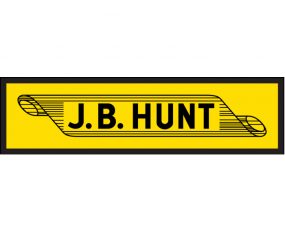
The US road and intermodal sectors remain volatile, illustrated by the leading US intermodal and road freight provider, J.B. Hunt. Its second quarter numbers were released at the end of last week, with intermodal revenues falling but better road freight business results.
Year-on-year, J.B. Hunt’s operating revenue (excluding fuel) was down 5% at $2.15bn, whilst operating income was down 9% at $175.2m.
The ‘Intermodal’ business suffered a drop in revenue of 7% and a fall in income of 14%. Load volumes fell 2%, led by a fall of 3% for trans-continental traffic and 7% in the eastern states. This was COVID driven, with a crash in demand in March and a “rebound” in May. Profits were squeezed by higher rail costs, but it is notable that driver retention has been better.
The road freight based ‘Dedicated Contract Carriage’ was quite different. Here, revenue was down 1% but operating income was up 9% at $83.1m. It is unclear why profits were so good, with revenue per truck declining but the fleet growing. What does seem to be happening is that driver-related costs are falling.
J.B. Hunt’s ‘Integrated Capacity Solutions’ freight brokerage struggled, with losses hitting $13.1m compared to $0.6m in Q2 last year. The business seems to have encountered a string of problems largely due to higher transport costs; some of these may be particular to J.B. Hunt.
The ‘Final Miles Service’ operation suffered from a number of its clients shutting their facilities due to COVID-19, driving revenue down by 2%, although losses were moderated to just $5.2m. It appears that J.B. Hunt has not been able to exploit the growth in e-retailing, although the company did say on a call around the results that it expected ‘Final Mile Service’ to break-even in the next quarter.
Bearing in mind the instability in the US economy of the past quarter or more, a hit to profits at a logistics service provider such as J.B. Hunt is unsurprising. It is a little disappointing that it has not been able to exploit last-mile activity better, but this is always a difficult sector to make money in. However, it is worth noting that the availability of drivers and their costs may have fallen, something that may benefit J.B. Hunt and other similar companies in the next half-year, especially as there are suggestions that demand may bounce-back aggressively.
Source: Transport Intelligence, July 21, 2020
Author: Thomas Cullen